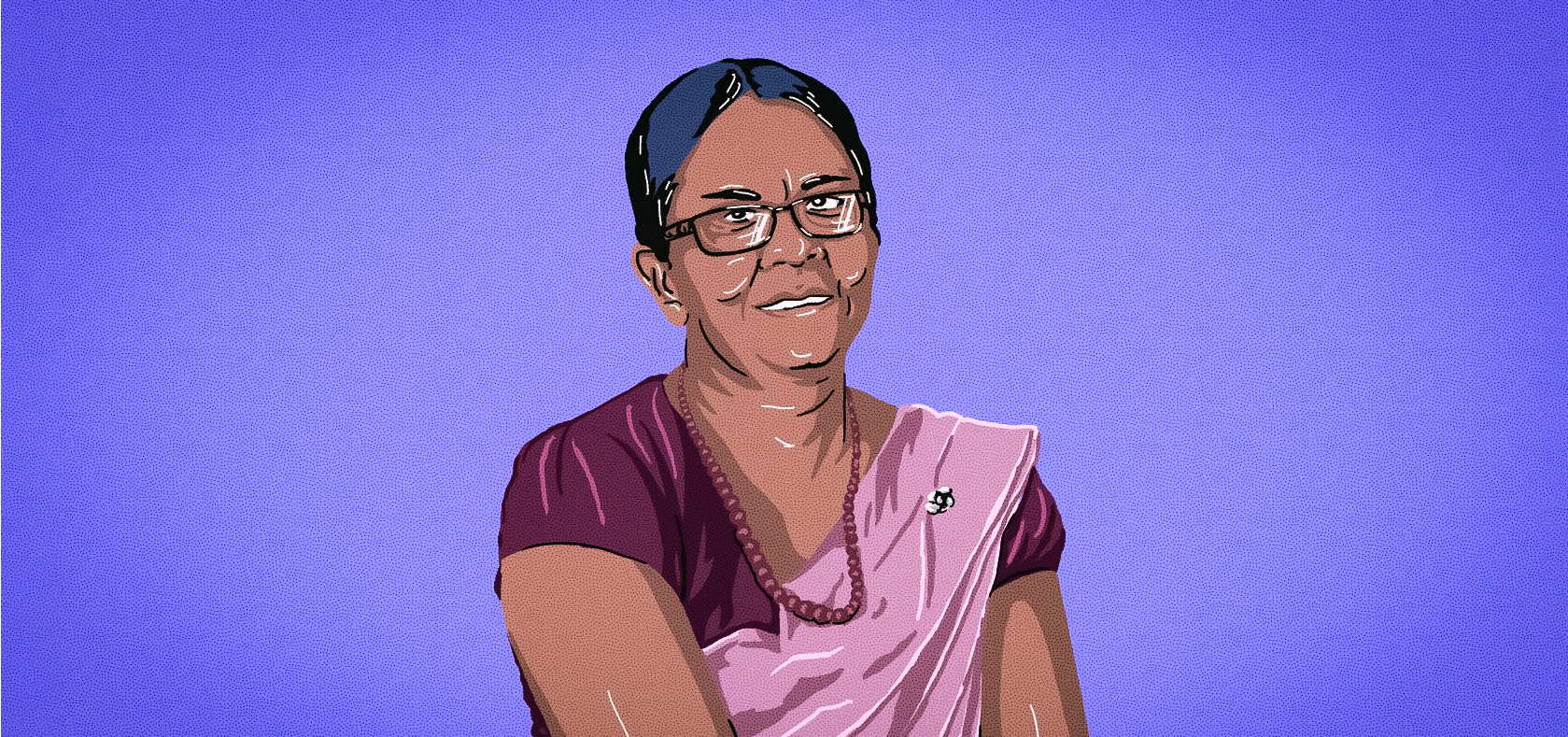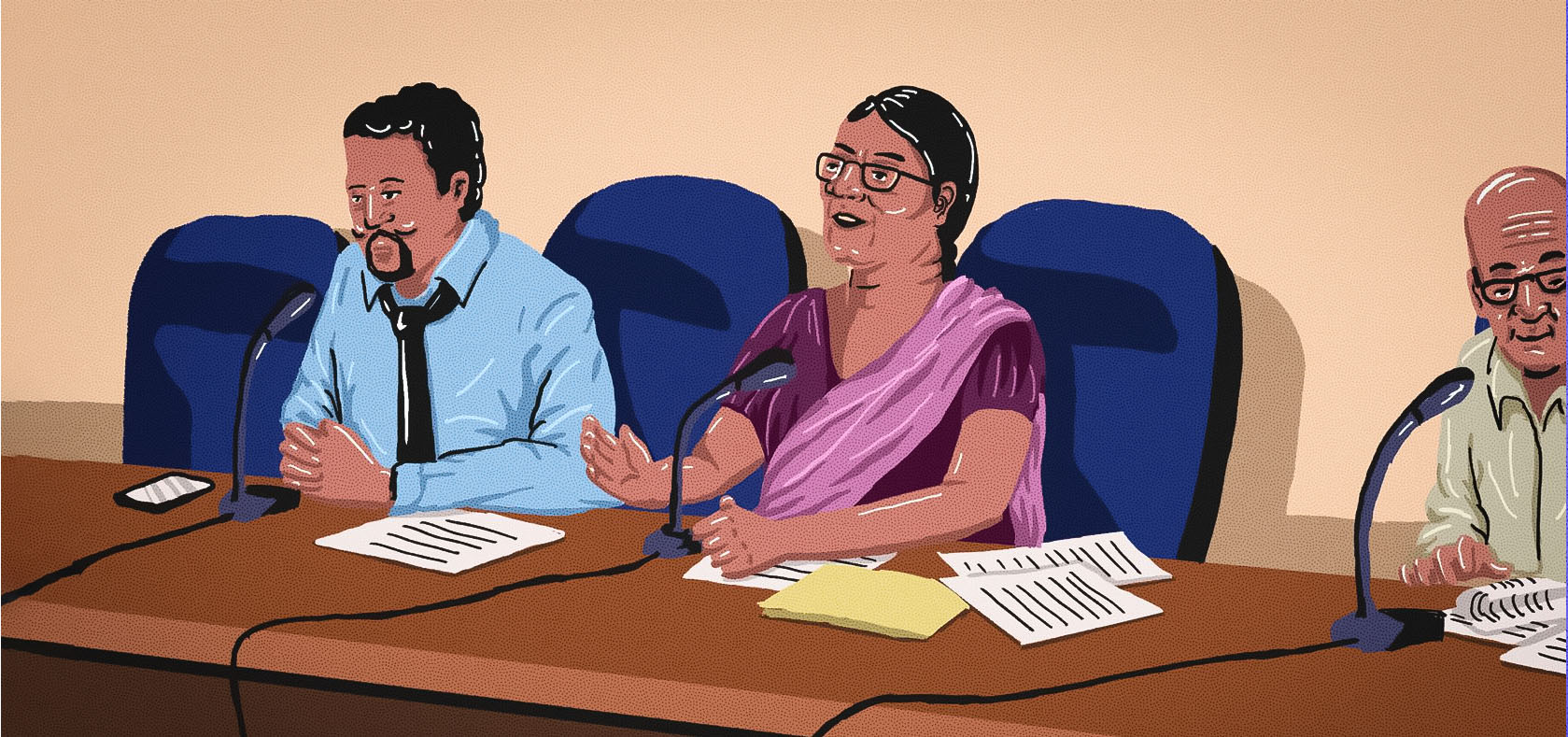In the words of Chandrawathi Dissanayaka: Female decision-makers “are often bullied into resigning”
Chandrawathi Dissanayaka, based in Siyambalanduwa, in Uva Province of Sri Lanka, is the first and only woman elected as president of a Pradeshiya Sabha [local authority] in the country. In October 2021, Dissanayaka attended a series of “multi-party dialogues” that UN Women hosted as part of its project, funded by the Government of Japan, on Implementing the Women, Peace and Security Agenda in Sri Lanka.
Date:
Interviewed by Sakina Aliakbar


Many people, especially women, ask me if it is easy to be in the role I am in today. My answer to them is, ‘No’.
At present we only have a 25 per cent quota for women in politics, and an even lower percentage of women at decision-making levels. There are many reasons for this. One is that women are not seen as capable. Second is the emotional abuse and bullying women go through as a result of being visible in the political arena. Traditionally, our society finds it unusual to see women in assertive positions making decisions about their lives. As a result, they are often bullied into resigning. It is very unfortunate, but this happens even at senior levels.
It is crucial that we see a significant increase in female representation in politics. There are certain issues that only female leaders can truly understand and advocate for change. One example is domestic violence. Having more women to handle such cases is a necessity because victims and survivors of violence also feel more comfortable speaking with another woman as opposed to a man.

I learned a lot during the multi-party dialogues held by UN Women. It gave me the opportunity to interact with experts in different fields and taught me the importance of being proactive to create sustainable change in our societies. When starting projects, I now know the importance of following up and monitoring its impact. This helped me reflect on how I could incorporate these learnings into my own professional and personal life.
Based on this, we also developed a program where 25 women leaders were appointed to identify and find solutions to issues that women face in society. This was successful especially in encouraging more women to take up leadership roles.
For gender equality to become a reality, we need everyone’s support. My advice to young boys and men who are thinking of a future in politics would be to make space for women: listen to them, recognize the valuable contributions they can bring in, and, at the very least, do not undermine their capabilities. … Equality can be achieved anywhere, and it starts with you.”